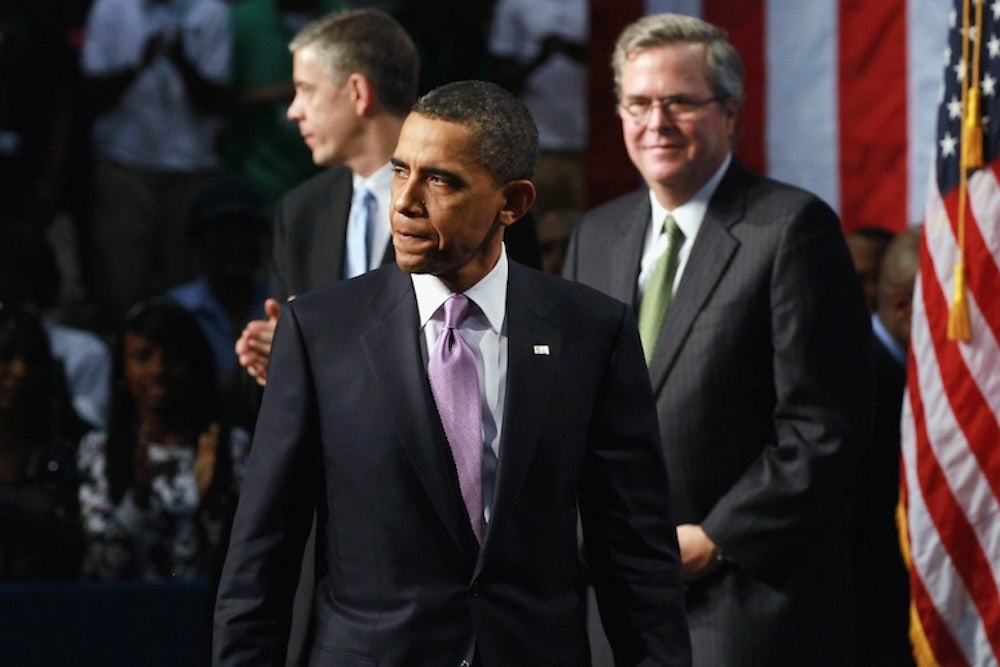Because the right never trusted him, Mitt Romney spent the entire 2012 presidential primary burnishing his conservative credentials, then spent much of the general election on unsure footing, never confident that the Republican base would be comfortable with his gestures to the broader electorate.
If the next Republican nominee is going to find a more comfortable balance, it won't be as an establishment guy putting on a Goldwater impression. The question is whether he’ll be a party activist or another patrician who also happens to be comfortable in his own skin.
Two weeks ago, former Florida Governor Jeb Bush weighed in for the latter approach. It’s time, he argued, for a Republican candidate—perhaps Jeb himself—to alter the formula that has blown up his party two presidential elections running.
"I kinda know how a Republican can win, whether it's me or somebody else,” he said, “and it has to be much more uplifting, much more positive, much more wiling to… 'lose the primary to win the general' without violating your principles."
For all the reasons Romney failed, Bush's theory benefits from the sheen of plausibility—and Bush himself seems ready to test it. On Tuesday, he announced that he'll create an exploratory committee, ahead of an official bid for the presidency. But for one key reason, it won’t work for him this cycle, and that reason is immigration.
I am excited to announce I will actively explore the possibility of running for President of the United States: https://t.co/luY4lCF2cA.
— Jeb Bush (@JebBush) December 16, 2014Over the past two years, the right wing of the Republican Party has morphed into a movement singularly opposed to amnesty for illegal immigrants. That purpose deepened when President Obama announced a program to defer deportation for millions of immigrants with deep roots in the U.S. Bush will be less able to satisfy this segment of the GOP electorate than any other potential candidate.
One of the predictable political consequences of Obama’s immigration actions was to set Republican presidential hopefuls into competition with one other to be anointed the most dependably anti-amnesty figure in the party.
Bush could sit out this race to the right if he weren’t so closely aligned with the GOP's pro-reform wing. He wants Republicans to be measured, “rather than have their heads explode with the president’s executive actions.” But he can’t execute his plan—he can't demonstrate a commitment to principles, even when they conflict with the demands of the primary—in the environment Obama just created.
Absent Obama’s actions, Bush could dance around the issue of immigration without betraying his pro-reform leanings—play up the need for border security, play down the urgency of the issue more generally.
But the central question facing Republicans at the outset of the primary will be what the next president should do not about immigration in the abstract, but about Obama’s deportation program specifically. Most candidates will be pledge to end it. To test his formula, Bush will have to promise not just to end it, but to replace the executive actions—which he called “extraconstitutional”—with a more legitimate legislative scheme.
It’s not a replacement, though, if it doesn’t create a legal status for the people who will benefit from Obama’s deferred action plan. And if he pledges to create such a status, the right will abandon him. Faced with such a threat, Bush could just as easily retreat from his compassionate position on the issue. Other Republicans have executed a similar volte-face. But then he’ll just become another Romney-like figure who by his own lights can’t win the presidency.
